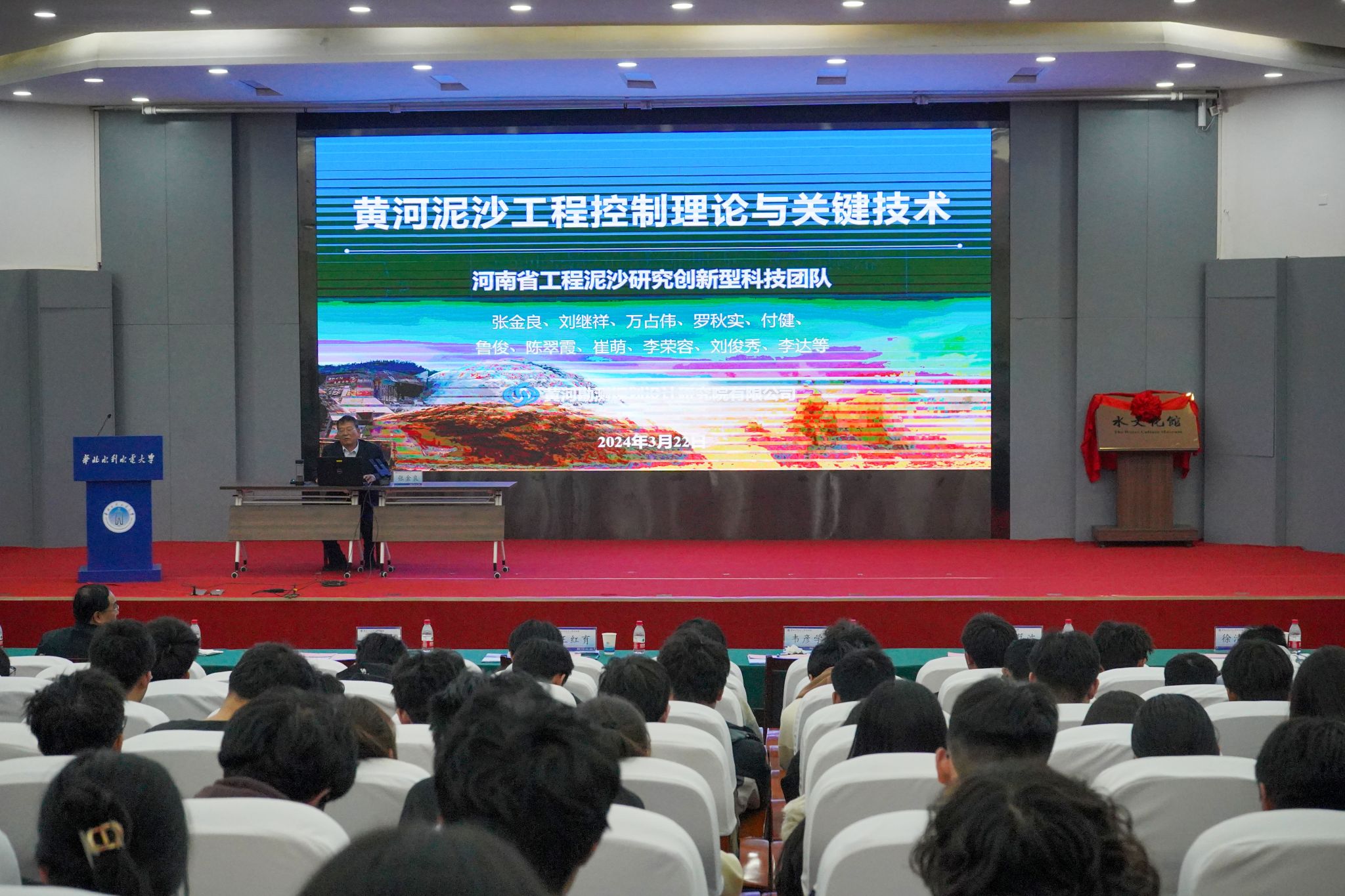Contributed by: Party Committee Propaganda Department | Edited by: Liu Ye | Photo by: Fu Wenjun | Preliminary Review: Liang Lili | Final Review: Qi Meng | Date: March 22, 2024
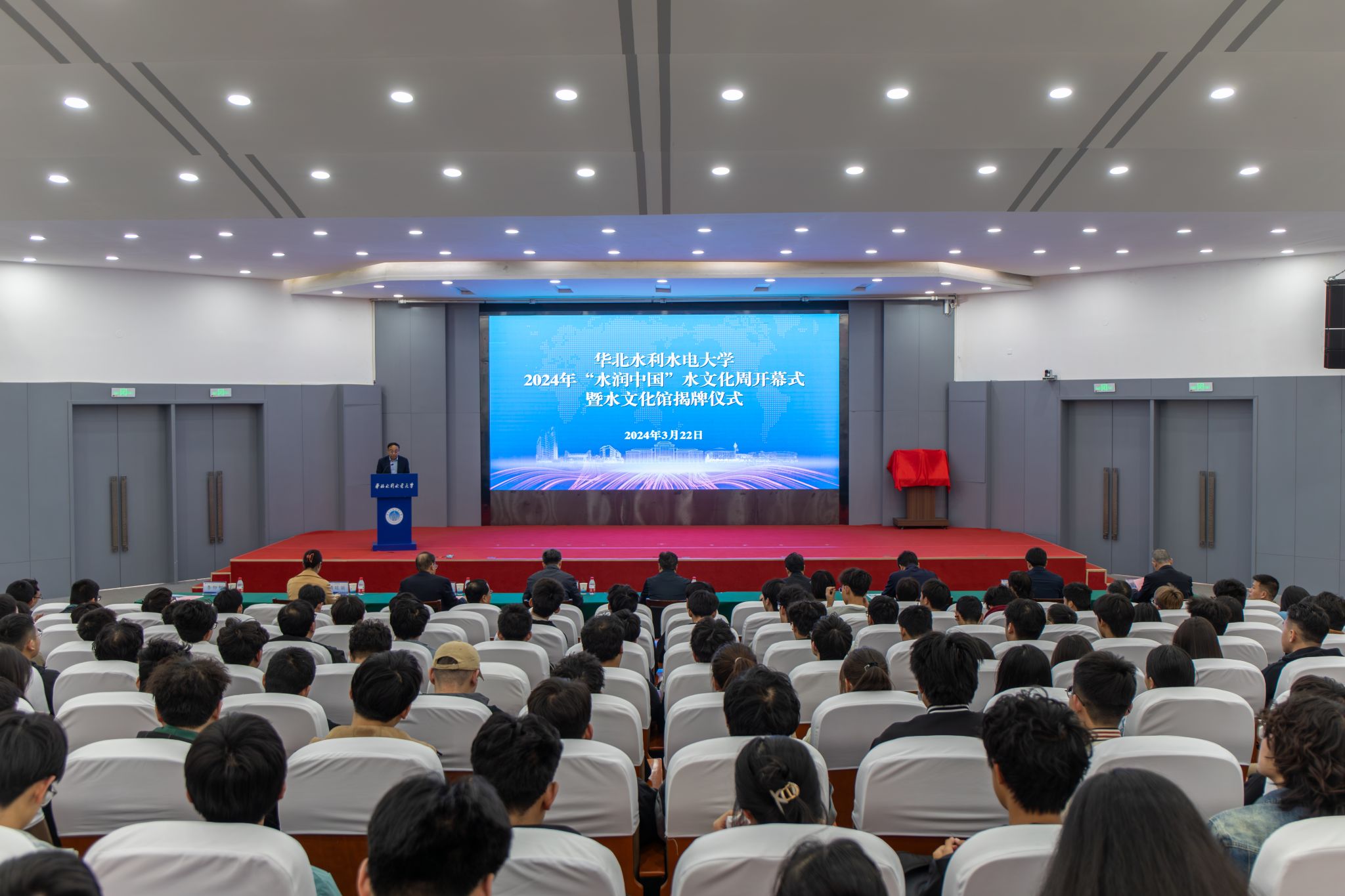
On the afternoon of March 22, our university held the opening ceremony of the "Water Nourishes China" Water Culture Week and the unveiling ceremony of the Water Culture Museum at the Longzihu Campus. Wang Hongyu, Deputy Director of the Publicity and Education Center of the Ministry of Water Resources, Wang Naiyue, Member of the Party Leadership Group and Secretary of the Discipline Inspection Commission of the Yellow River Conservancy Commission of the Ministry of Water Resources, and Wang Dubo, Secretary of the University Party Committee, attended the ceremony. The ceremony was presided over by Vice President Li Yangzhi.
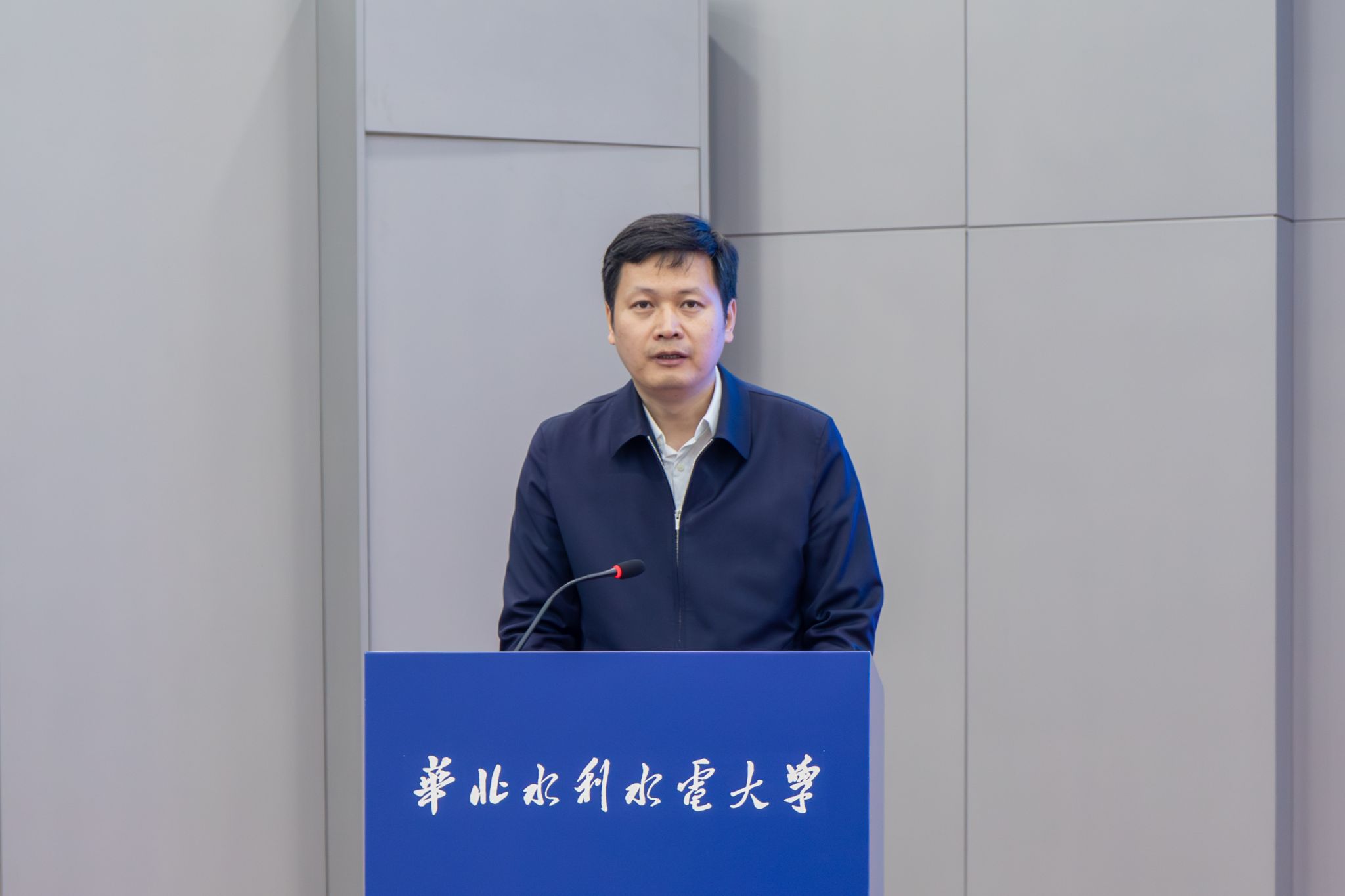
In his speech, Wang Dubo expressed his sincere gratitude to the faculty, students, and builders of North China University of Water Resources and Electric Power (NCWU) who contributed their wisdom and sweat to the construction of the Water Culture Museum. He remarked that 2024 marks the tenth anniversary of General Secretary Xi Jinping's important speech on ensuring national water security. March 22 is the 32nd "World Water Day", and March 22 to 28th is the 37th "China Water Week." He emphasized the significance of holding the opening ceremony of NCWU's "Water Nourishes China" Water Culture Week and the unveiling ceremony of the Water Culture Museum on this special day. He pointed out that the Water Culture Museum serves as a crucial base for disseminating water culture and popularizing water conservancy knowledge to both the university community and the broader society. It also acts as a vital window showcasing the university's achievements in inheriting and innovating water culture, encompassing functions such as education, research, collection, preservation, and exchange. Moving forward, the university will fully utilize and leverage the functions of the Water Culture Museum to further strengthen its original mission and responsibility as a specialized institution in the water conservancy sector. It will actively fulfill its role in inheriting and innovating water culture, contributing its strength to the high-quality development of water conservancy endeavors. Firstly, NCWU aims to further explore the connotations of water culture construction and contribute to the inheritance and promotion of water culture. The university will leverage the unique advantages of the Water Culture Museum in cultural inheritance and innovation to continue advancing water culture construction. This includes effectively narrating the stories of water conservancy, preserving historical context, promoting Chinese civilization, and strengthening cultural confidence. By harnessing the boundless charm and spiritual nourishment of water culture, NCWU seeks to utilize its centripetal force, cohesiveness, guidance, and creativity to drive the creative transformation and innovative development of China's outstanding traditional water culture. The goal is to expand and strengthen research on water culture at NCWU, ensuring its enduring appeal and contemporary value across time and generations. Secondly, NCWU aims to further inherit and promote the spirit of water conservancy and cultivate talents with expertise in this field. The university will effectively utilize the museum and its facilities to firmly implement the fundamental task of fostering virtue through education. By leveraging its unique strengths in water conservancy, NCWU will provide students with opportunities to appreciate the excellent tradition of flood control cultivated by the Chinese nation over thousands of years. They can also learn about the valuable water management experience accumulated during the long history of combating floods. Moreover, students can gain a comprehensive understanding of the magnificent landscape of "water conservancy in a major country" through sand table models and experience the remarkable achievements in water conservancy construction under the leadership of the Communist Party of China since its establishment. The Water Culture Museum will serve as a crucial practical training base for cultivating talents specializing in water conservancy and a popular science education base for water-related education, providing strong talent support for the high-quality development of the economy, society, and the water conservancy industry. Thirdly, NCWU aims to further focus on strategic water conservancy needs and uphold its original mission in the new era of water management practices. As a university specializing in water resources, NCWU will continue to integrate China's outstanding water culture and General Secretary Xi Jinping's important discourses on water governance into its educational practices. The university will further enhance its distinctive strengths in water conservancy, focusing on major national strategic needs and targeting the forefront of developing new productive forces in the water sector. NCWU will adhere to its original mission of revitalizing the nation through water management and anchor its strategic goal of building a "Double First-Class" university. It will actively promote the inheritance and innovation of water culture, internalizing it as a value concept and spiritual pursuit highly recognized by faculty and students. With a deeper understanding, broader perspective, and more effective measures, NCWU will provide technological, talent, and cultural support for advancing high-quality water development in the new era. The university will attract and encourage public concern and support for water conservancy, fostering a positive social atmosphere. NCWU will continue to contribute its wisdom to the nation's new era of water management practices and strive for outstanding achievements to celebrate the 75th anniversary of the founding of the People's Republic of China.
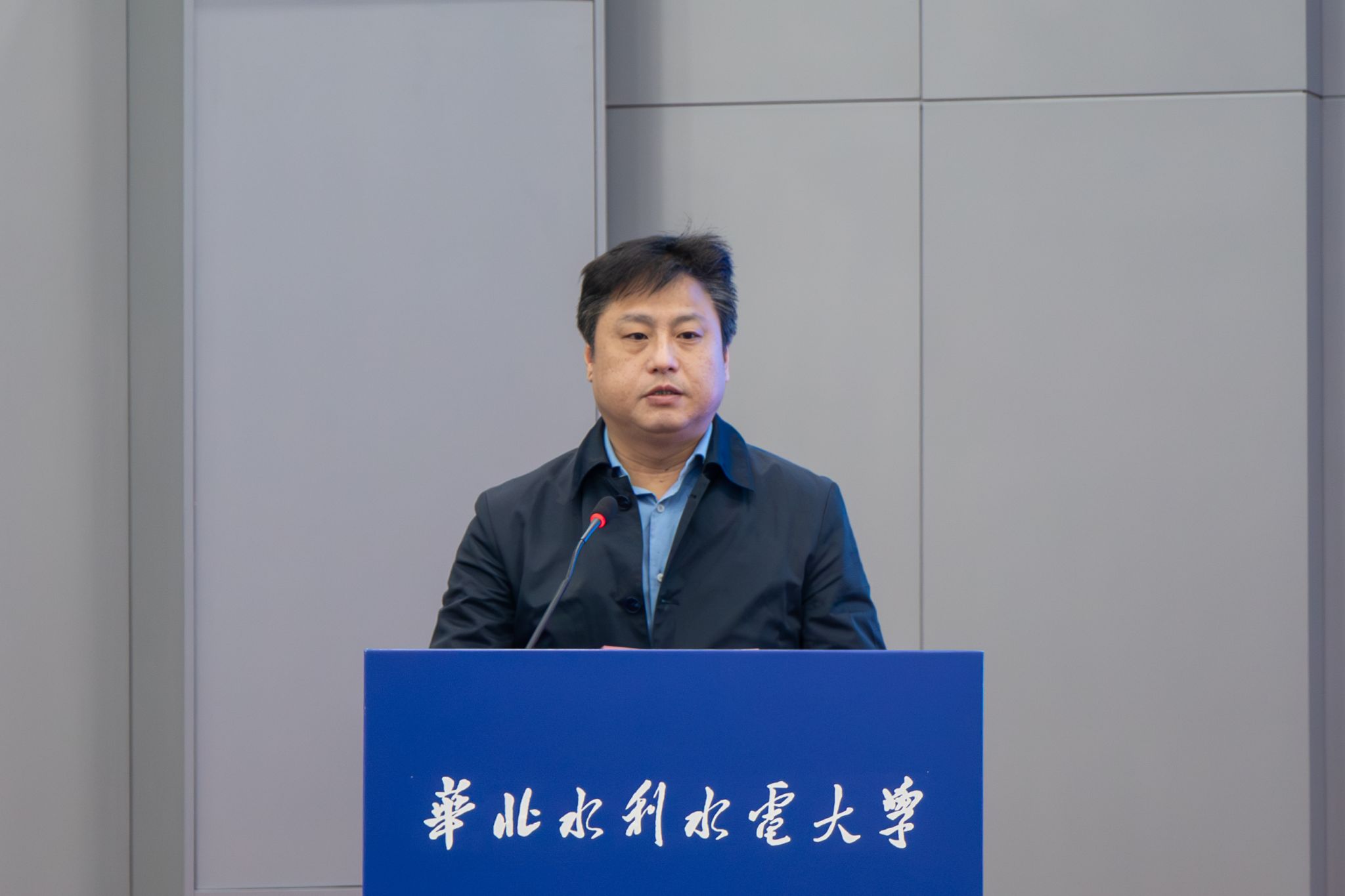
In his address, Wang Hongyu expressed his sincere respect and gratitude to generations of NCWU leaders, faculty, and students for their deep sentiments and contributions to water culture. He acknowledged NCWU's longstanding emphasis on water culture construction and inheritance, which has yielded unique and effective results in promoting water culture throughout the country. He expressed his hope to collaborate with NCWU faculty and students to accomplish three key tasks: integrating water culture development with the overarching national framework, ensuring water culture dissemination remains relatable and grounded, and promoting water culture through multi-faceted, concerted efforts. The Publicity and Education Center of the Ministry of Water Resources will join forces with NCWU to engage universities, communities, and organizations through intercollegiate collaborations and youth volunteer social practice activities. The aim is to integrate water culture into various aspects of research, teaching, exchange, and practical work, targeting students, society, media, and the future. Together, we will strive to build NCWU into a leading hub for water culture education, construction, and dissemination.
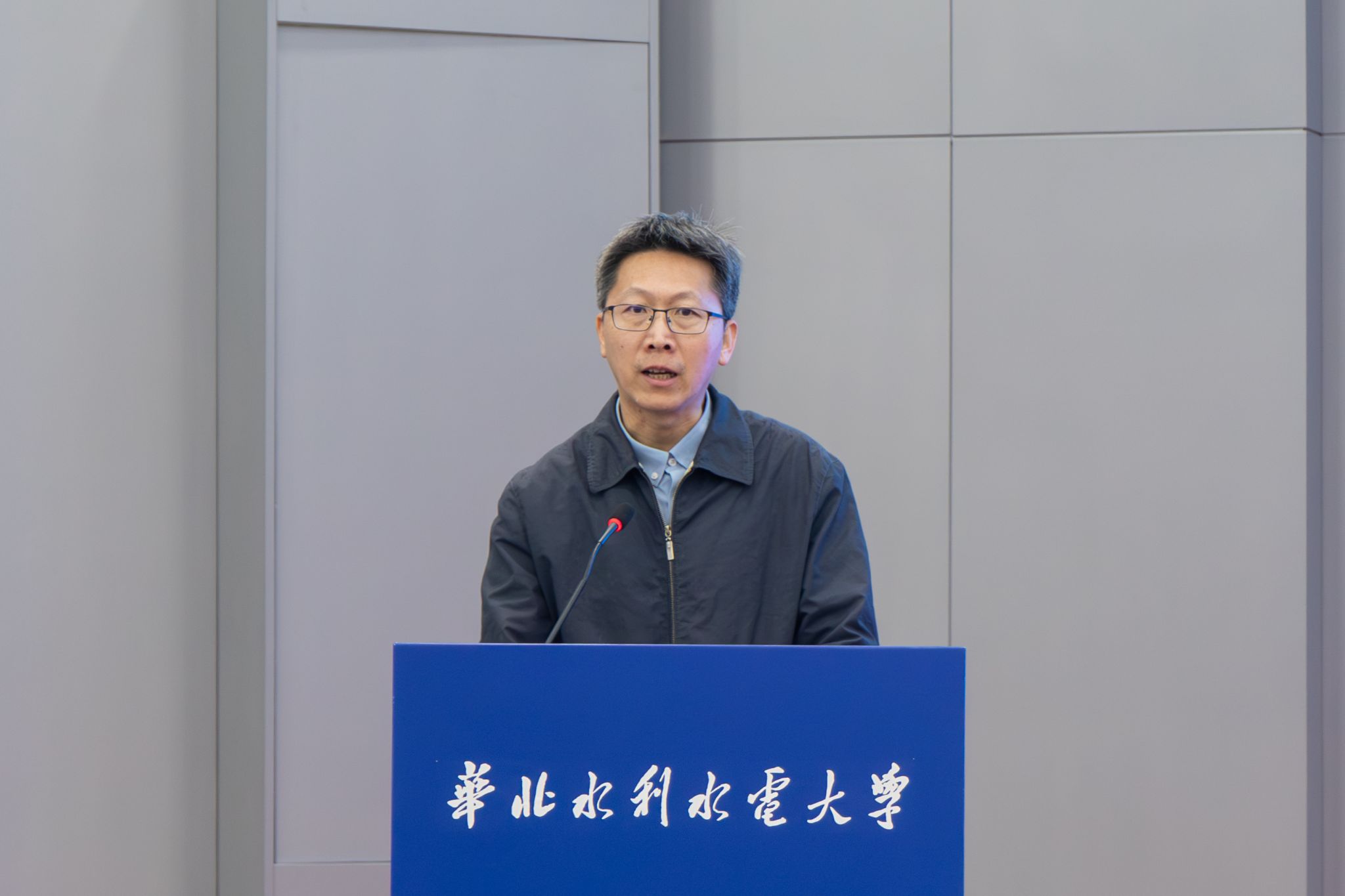
On behalf of the Yellow River Conservancy Commission, Wang Naiyue extended his sincere congratulations on the launch of the "Water Nourishes China" Water Culture Week and the unveiling of the Water Culture Museum. He highlighted NCWU's close connection to water, emphasizing its name, origin, existence, and prosperity, which are all intertwined with water. He also noted the long history of collaboration, solid foundation, and promising prospects for cooperation between NCWU and the Yellow River Conservancy Commission in their shared journey of protecting the Mother River. He expressed his hope that both parties would continue to leverage their respective strengths and complement each other, using culture as a medium to convey values, amplify voices, and cultivate individuals, thereby contributing positive energy towards realizing the Chinese Dream of national rejuvenation. He further hoped that they would continue to work together to promote the creative transformation and innovative development of China's outstanding traditional water culture, enhancing its influence and creativity. Additionally, he emphasized the importance of collaborating to advance the construction of Yellow River culture, effectively narrating the stories of water and the Yellow River in China, and providing strong cultural support for ecological protection and high-quality development in the Yellow River Basin.

Wang Hongyu and Wang Dubo unveiled the plaque for the Water Culture Museum, with relevant leaders present to witness the ceremony.
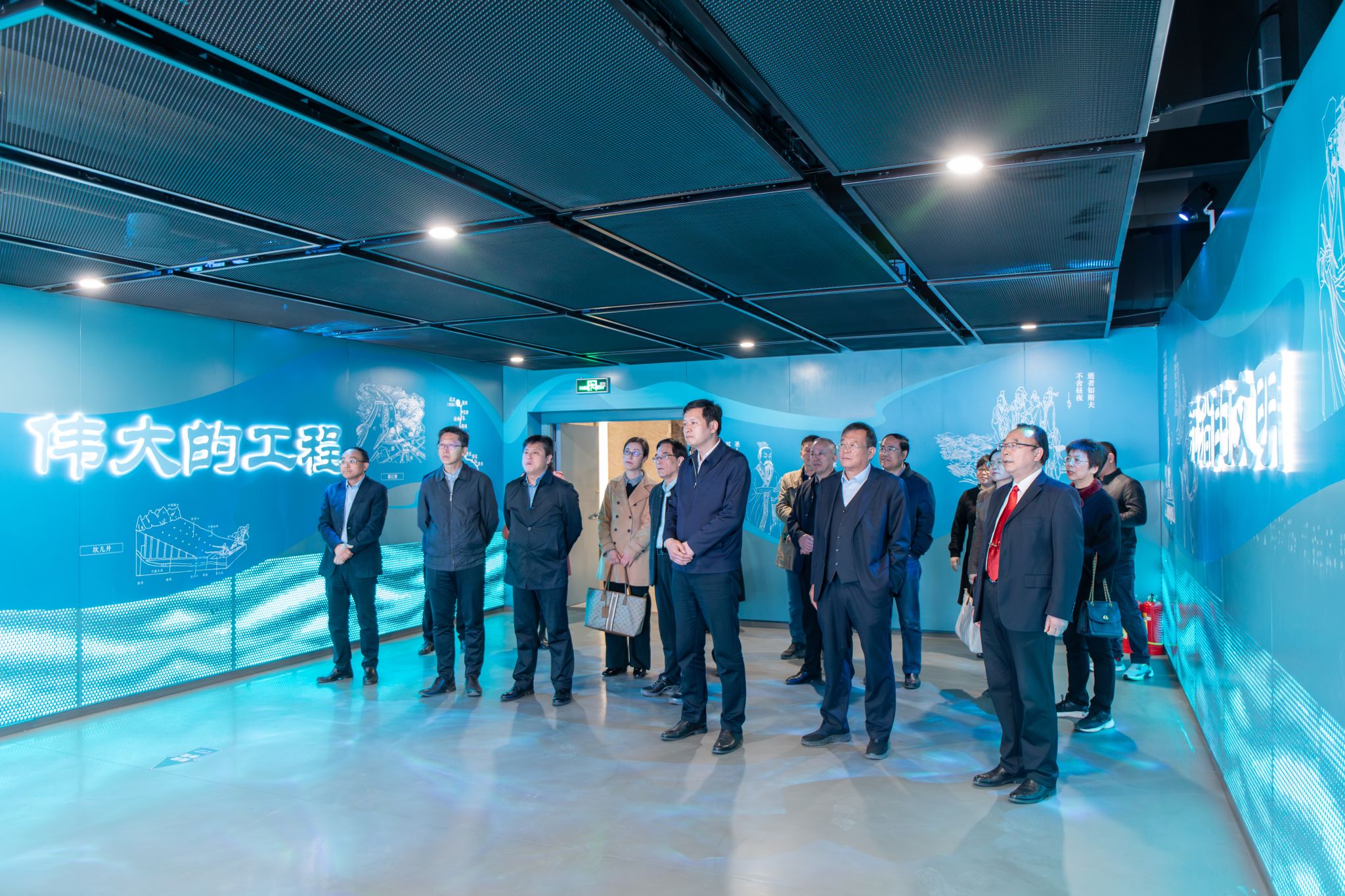

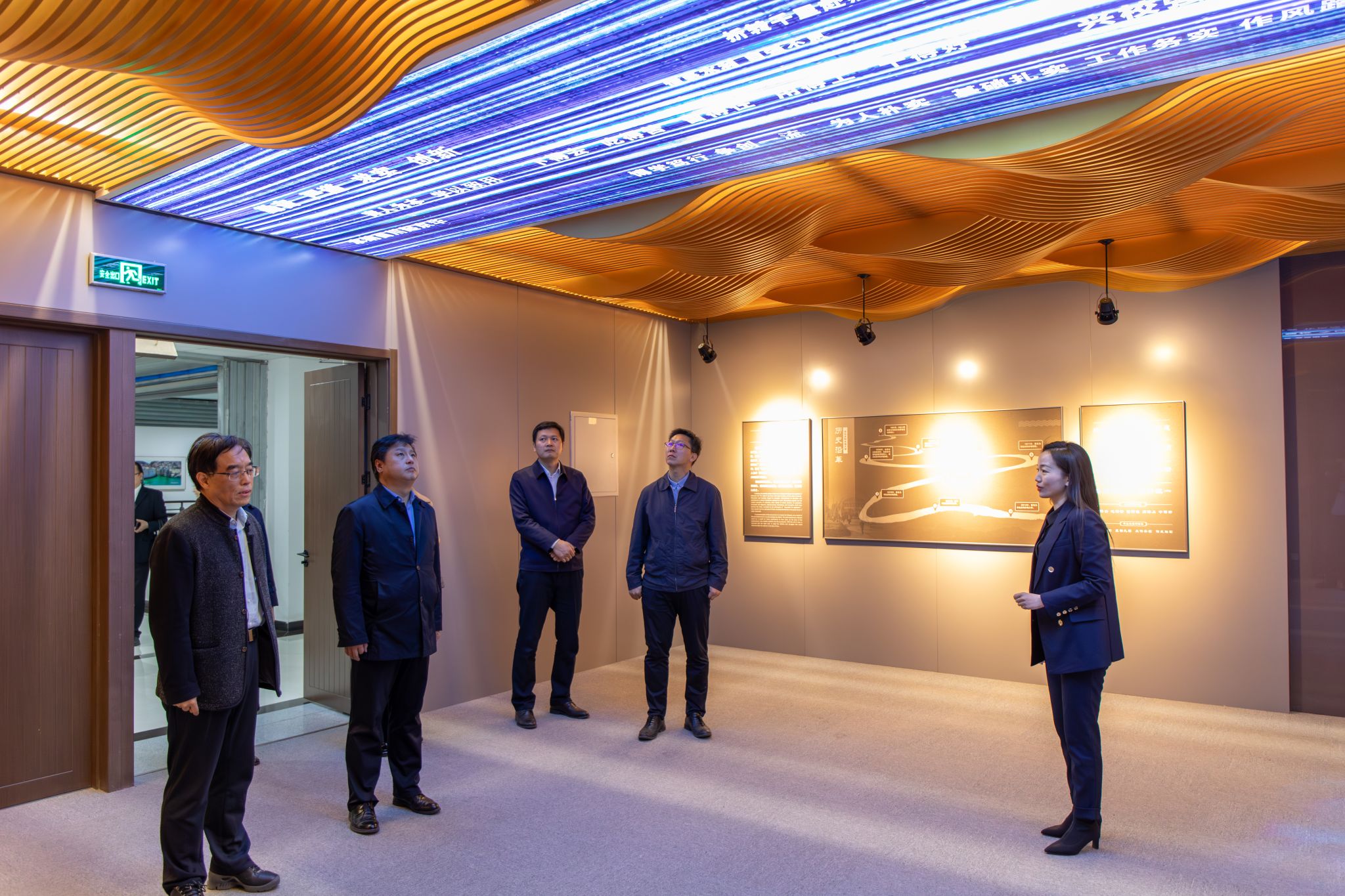
Before and after the ceremony, participating leaders toured the university's Water Culture Museum, Meng Ruipeng Memorial Hall, and the University History Museum. Professor Zhang Jinliang, Chief Expert of the Yellow River Conservancy Commission of the Ministry of Water Resources, Director of the Key Laboratory of Water Security and Water Governance in the Yellow River Basin of the Ministry of Water Resources, and Chief Engineer of the Yellow River Laboratory (Henan), delivered a report entitled "Theory and Key Technologies of Sediment Engineering Control in the Yellow River" to the faculty and students present. Responsible comrades from relevant departments of the Yellow River Conservancy Commission of the Ministry of Water Resources, the Publicity and Education Center of the Ministry of Water Resources, the Department of Water Resources of Henan Province, and the Hydrology and Water Resources Center of Henan Province, as well as representatives of faculty and students from the School of Social Sciences, the New Era Water Governance Social Science Research Institute, and various schools of NCWU, participated in the event.
